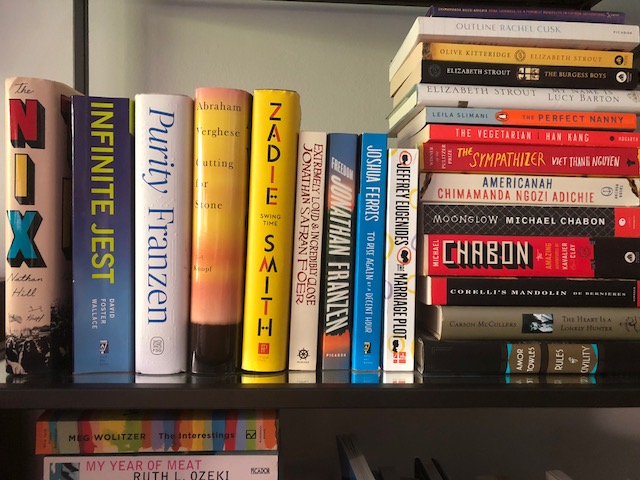As an executive coach it’s important that I bring research based tools to the table. In order to encourage people to integrate new ideas and information into their existing frameworks, I introduce evidence based principals explored by current thought leaders. I look for the data, statistics and science that explain the value of the changes and behaviors we are working on.
I find most books explaining the latest research and thinking on various aspects of our behavior to be too long. There are too many intricately detailed descriptions of laboratory conditions and variables, too many case studies that draw out a single concept across many situations. I know this is often necessary; I do read these books and am grateful for them. But I am wary of recommending them to my clients who already spend so much time downloading information to translate into immediate action and results. I prefer to distill the denser reading for them and find them short articles and TED Talks that highlight important findings. It’s not just that I wish to save them time, but because I wish to help them reserve their reading time for something equally important; novels.

Reading novels creates a different kind of space for our brains to explore what it is to be human. A good novel is fertile development ground for empathy, self-awareness, compassion and broader understanding of the variety of people we interact with each day. Every good character I discover in a novel reveals to me another kind of person I may encounter. Sometimes, a character will help me better understand someone I already know.
Here are some things we can learn and absorb while reading a novel: behaviors that keep people from getting what they really want, belief systems that prevent people from getting what they want, how many people have difficulty even defining what they want, how our thoughts can derail us or serve us, how our intentions can be vastly different than the way people perceive them, how people who seem strange or cold on the outside can have rich inner lives, how very many people feel misunderstood, how clunky most of us are at saying what we mean, the vast array of circumstances that shape who we become.
A novel places us in the center of story, the oldest of human methodologies for sharing knowledge, instilling wisdom and creating community. Stories work on us in subtle and poignant ways. They speak to our rational brain while fueling our imaginations. Books, unlike film or TV, require our input in the shaping of the characters and setting. We must visually create every character and event in our minds so that each reader is a co-creator with the author of the story they internalize. Let us not underestimate the value of our imaginations. The kind of empathy that enables us to interact with someone in more thoughtful, productive ways requires an act of imagination. We must be able to imagine what it is to perceive, think and feel as they do. Acts of imagination are also required for innovation, strategy and finding ways to overcome obstacles.
Every good novel I read stokes my curiosity about something new; a place, time period, industry or event I hadn’t previously known or thought about. Curiosity is what keeps us alert, interested and interesting. Curiosity keeps us open to newness; new people, new ideas, new information. It is the most active, least fearful place we can be operating from.
What we discover about the world and ourselves in a novel, we can take directly into our lives and conversations. If you are reading novels there is always something to talk about, always something that will make you see something in your everyday world differently.
Reading novels feels like an indulgence to many. A thing we wish we had time to do. I suggest that it is not at all an indulgence but a valuable resource in our ongoing need to better understand the motivations and behaviors of ourselves and those around us. There is wisdom and insight to be had. There is curiosity and conversation to be stoked. There is learning about the intricacy of who we are that can be applied as we navigate working and living with the myriad characters who inhabit our lives.


Brilliant and well written. Curiosity is what keeps us alert, interested and interesting. Wow good stuff.